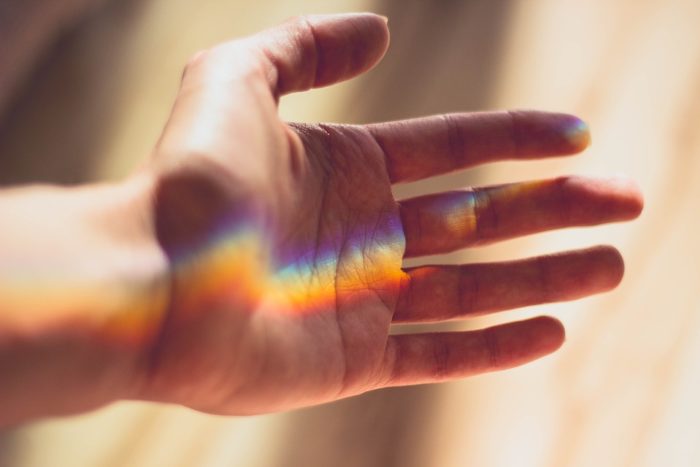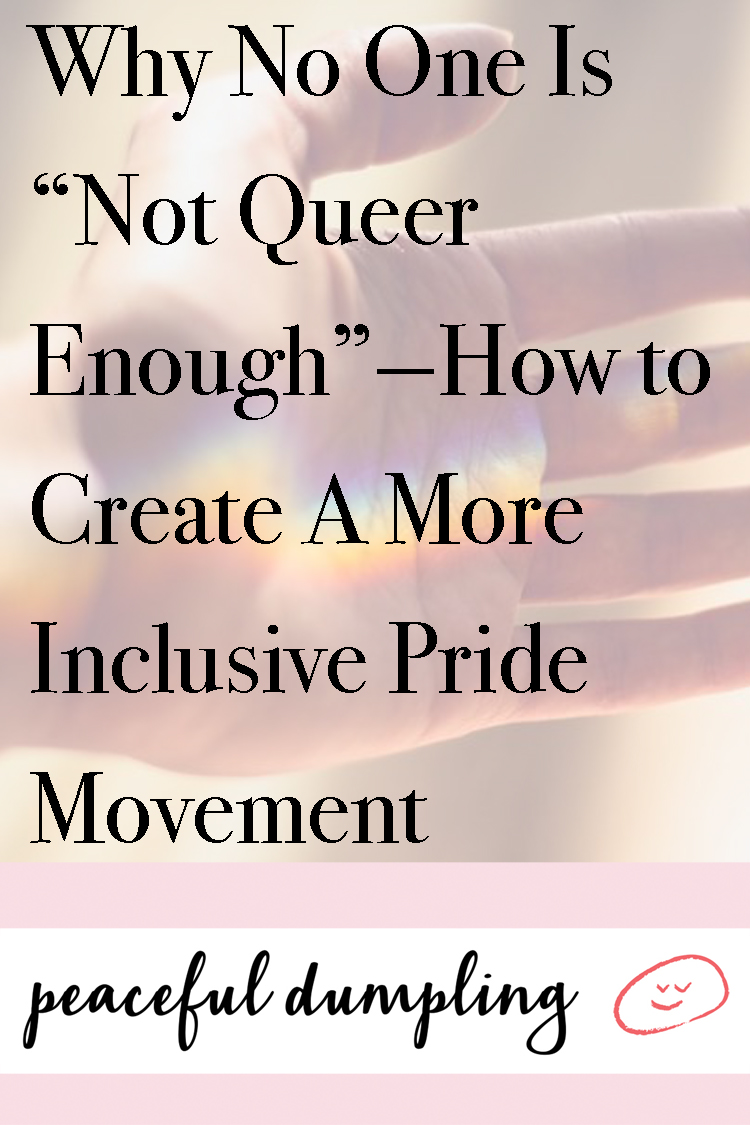
TW: Rape
I can’t tell you exactly when I began to pinpoint that something about me was “different,” but I do know that from ages 13 to 25, I was absolutely terrified by it. From a tender age, society had pressed upon me that romantic love was the “be all, end all” — a universally shared goal and the thing that made you “normal.” You date for a while, meet “the one,” fall in love, get married, and live happily ever after. That was the life script everyone I knew was following, but for some reason, it wasn’t happening for me.
I dated, I got close to men, and then as soon as anything remotely “romantic” happened, I fled. Hand holding, cuddling, romantic touching — it made me deeply, intensely uncomfortable. I was fine with sex, but anything beyond that was practically excruciating. It was only natural that I found this reaction to be distressing. Everything and everyone around me was constantly screaming that my life would be empty and unhappy unless I was in a romantic relationship.
It was at age 25 (after breaking up with my perfectly awesome boyfriend) that I finally accepted that romantic love wasn’t for me. And it was only recently that I found there was a word for it — aromantic. While I definitely feel love for my friends, family, and pets, I don’t experience romantic attraction to others. I do feel sexual attraction, but that’s an entirely different subject.
Being able to identify as aromantic opened an entire world to me. I suddenly understood why I felt the way I did. What’s more, I found others like me who I could share stories with and relate to. It was amazing.
What wasn’t amazing was how many people openly derided aromantics and asexuals — especially those in the queer community. Some said aces and aros didn’t belong in the community and shouldn’t be allowed to join in Pride celebrations. They felt certain identities were “made up,” and dismissed entire groups of people from the LGBTQIA+ movement, claiming they weren’t “queer enough” to be involved.
But here’s the thing, this gatekeeping — that is, the activity of controlling and limiting access to something — is preventing vulnerable people from getting the support they need.
Not Queer Enough
Pride gatekeepers often ridicule members of the bi community, systematically exclude transgender people from discussions, and outright erase asexual and aromantic people. They actively engage in the “Oppression Olympics,” claiming that “straight passing” people don’t have it as hard and therefore don’t have a leg to stand on.
While some of these groups may not have a long record of institutional oppression against them, it doesn’t mean they haven’t suffered. They may have been treated as if their sexual orientation or gender identity is a mental illness. They may have been shunned by family and friends. They may have been a victim of corrective rape. The kind of discrimination and oppression they experience may be different from other members of the queer community, or it may be the same — but it does exist and it does cause serious harm.
We live in a heteronormative society where there are strongly established (mis)conceptions of gender, sexuality, and what it means to be human. These “societal norms” put undue pressure on all members of the LGBTQIA+ community, including bisexual, trans, questioning, intersex, asexual, and aromantic people. We all need access to support, resources, and opportunities to connect with others who’ve had similar experiences.
How To Make Things Better
Pride is for those who identify as homosexual, bisexual, pansexual, polysexual, asexual, demisexual, aromantic, transgender, transsexual, intersex, genderfluid or non-binary, queer, those who are still figuring things out, and of course, our allies. All should be welcomed warmly, no matter what their relationship status or composition. Ultimately, anyone who has experienced “otherness” due to their sexual, romantic, or gender identity belongs at Pride.
Telling someone they don’t belong at Pride is exceedingly harmful. Whether someone is newly discovering their sexual/romantic/gender identities or they’ve known for years, to be rejected based on an arbitrary set of rules is incredibly painful. How can we fight oppression if we oppress others?
When you’re attending Pride festivities this year, assume everyone who is there belongs there. Don’t assume anyone’s sexuality or gender. You never know from looking who someone is on the inside. Not only should you not engage in gatekeeping activities, you should also call out anyone who is. If you say something, others will follow.
Being part of the LGBTQIA+ community means supporting each other and embracing our differences. We all have unique experiences, and we all deserve to feel safe and heard. Happy Pride month, everyone!

How do you practice inclusivity?
Also by Liz: 5 Things I Learned From *Actually* Doing A Pinterest-Style Home Renovation
Related: 6 Peaceful Ways To Be An Activist (Whether Or Not You’re Down To Protest)
Here’s How “Creative Sex” Will Obliterate You (In The Best Way Possible)
Polyamory Liberated My Love Life–Why It Might Help You Too
Get more like this—Subscribe to our daily inspirational newsletter for exclusive content!
__
Photo: Pixabay
